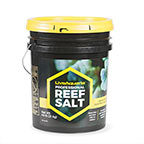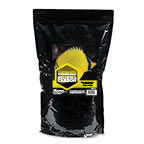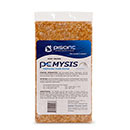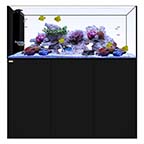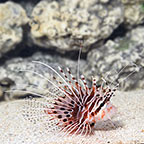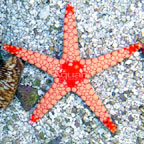Tibicen Angelfish
(Centropyge tibicin)
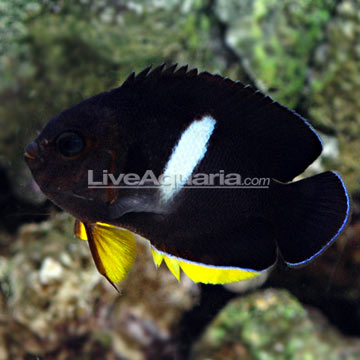
Please Note: Due to variations within species, your item may not look identical to the image provided. Approximate size range may also vary between individual specimen.
Please Note: Due to variations within species, your item may not look identical to the image provided. Approximate size range may also vary between individual specimen.
Tibicen Angelfish
(Centropyge tibicin)
Additional locales and sizes may be available!
Additional locales and sizes may be available! Email me when availableQuick Stats
Care Level
Moderate
Temperament
Semi-aggressive
Color Form
Blue, Yellow
Diet
Omnivore
Reef Compatible
With Caution
Water Conditions
sg 1.020-1.025, 72-78° F, dKH 8-12, pH 8.1-8.4
Max. Size
8"
Family
Pomacanthidae
Minimum Tank Size
70 gallons
Compatibility
View Chart
What do these Quick Stats mean? Click here for more information
Care Level
Moderate
Temperament
Semi-aggressive
Color Form
Blue, Yellow
Diet
Omnivore
Reef Compatible
With Caution
Water Conditions
sg 1.020-1.025, 72-78° F, dKH 8-12, pH 8.1-8.4
Max. Size
8"
Family
Pomacanthidae
Minimum Tank Size
70 gallons
Compatibility
View Chart
What do these Quick Stats mean? Click here for more information
Overview
The Tibicen Angelfish, also referred to as the Keyhole Angelfish or Melas Angelfish, is one of the largest of the Centropyge genus. Somewhat drab when compared to most other angelfish, the Tibicen Angelfish is primarily a dull blue to brownish-blue. The pelvic and lower portion of the anal fins are yellow. The egg-shaped, white vertical bar found in the mid-central body area gives it its name.
Provide a 70 gallon or larger tank for the Tibicen Angelfish. It should have large amounts of live rock for hiding and grazing. It may nip at stony and soft corals (sessile invertebrates) and clam mantles. It will also feed on filamentous algae and diatoms.
It is hermaphroditic, very difficult to breed in an aquarium, and has no distinguishable differences in color between male to female.
Its diet should also include Spirulina, marine algae, high-quality angelfish preparations, mysis or frozen shrimp, and other meaty items. Feed 2-3 times daily.
Approximate Purchase Size: Small: 1" to 2-1/4"; Medium: 2-1/4" to 3-1/2"; Large: 3-1/2" to 5"; XLarge: 5" and Larger
Supplies You May Be Interested In
Customer Testimonials
Chad V
Peoria , AZ
This fish is wonderful. He can be quite shy but is full of life after a few days. I have him housed with a surgeon fish, tomato clown, two green chromis and two peppermint shrimp. He gets along with all of them.
Harjit B
NJ
Beautiful fish. I have it in a 125g.
The only problem is that it picks on stony and soft corals.
1-2 of 2 testimonials




